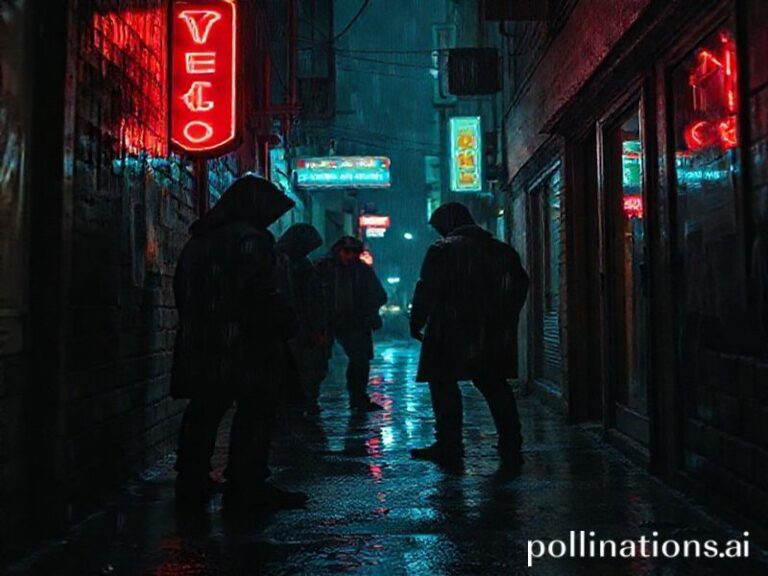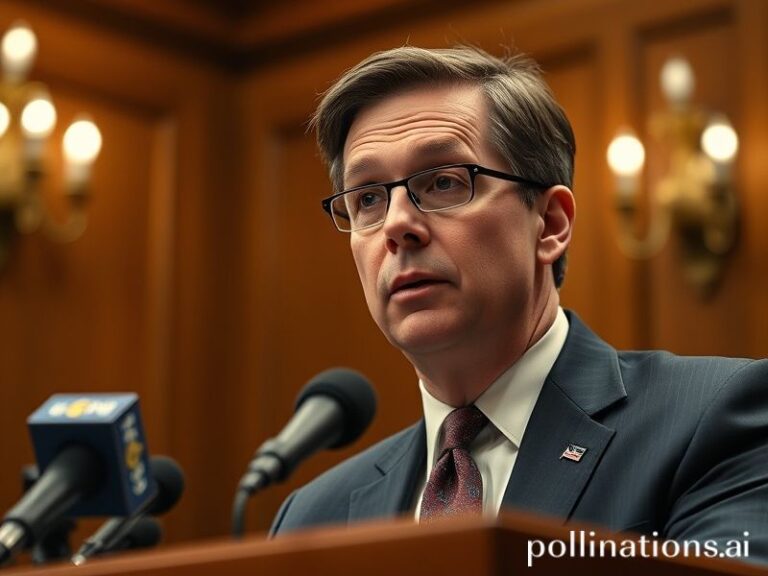Priscilla Presley: Global Emissary of American Melancholy and the Fine Art of Selling Sorrow
Priscilla Presley and the Global Alchemy of Tragedy Chic
By Marisol Vega, Senior Correspondent, Dave’s Locker
If you want to understand how the world metabolises American heartbreak, watch Priscilla Presley doing press in Seoul, Tokyo, or—God help us—Dubai. At 78, she glides through luxury-hotel lobbies like a diplomat from the sovereign nation of Nostalgia, flanked by bodyguards who learned their trade guarding Saudi princes and Korean boy-band members. The local media call her “Yojeong-ui yeowang”—Queen of Melancholy Pop—and treat her arrival like a state visit, which, in a way, it is. After all, Elvis has been dead longer than most TikTok users have been alive, yet his ex-wife still exports more soft power than several European micro-nations combined.
Priscilla’s current tour, cynically branded “Elvis Through Her Eyes,” is ostensibly a multimedia retrospective. In practice it’s a traveling grief-theme park: a velvet-rope exhibition of jumpsuits, pill bottles, and handwritten grocery lists (“peanut butter, bananas, Valium”), all tastefully lit so the audience can contemplate the wages of excess without feeling personally implicated. Tickets cost more than the average monthly wage in Sri Lanka, and they sell out in minutes. The irony, of course, is that Priscilla—who once had to sue the Elvis estate for her own alimony—is now its most effective lobbyist, repackaging family dysfunction as global heritage.
The international appetite for this spectacle tells us more about our collective hang-ups than about Elvis himself. In Manila, fans who lost relatives during Duterte’s drug war queue for selfies beside a rhinestone cape once stained with prescription cough syrup. In Berlin, a city that knows a thing or two about ruin, curators compare Graceland’s shag-carpet decadence to the Palace of the Republic’s asbestos glamour. Everyone, it seems, wants a curated slice of someone else’s catastrophe—preferably with Dolby Atmos sound and a gift shop.
Priscilla understands the transaction. Her public statements have the polished fatalism of a UN sanctions report. “We were just kids,” she sighs in interview after interview, the pronoun “we” now encompassing half a century of cultural fallout. The subtext: buy the ticket, take the ride, but don’t blame the driver when the bus goes off the cliff. It’s a masterclass in monetised survivor’s guilt, and the world keeps signing up for refresher courses.
Meanwhile, streaming platforms from Lagos to Lima binge the Baz Luhrmann biopic as homework, prepping for the ultimate pilgrimage: a 9,000-mile flight to Memphis, a $499 VIP grave-side photo, and the surreal realisation that the King’s eternal flame is now ring-fenced by a Starbucks. Priscilla, ever the gracious host, insists the corporatisation is “what Elvis would have wanted,” which is either the most honest or the most cynical sentence ever uttered by an ex-wife—possibly both.
What makes Priscilla globally significant isn’t the hair or the cheekbones (though surgeons from São Paulo to Seoul still hand patients her 1967 mugshot). It’s her role as translator—turning American burnout into universal folklore. In Argentina, where inflation chews through memory faster than it does wages, middle-class couples reference Graceland’s foreclosure as a cautionary tale. In India, Bollywood producers option her life rights for a song-and-dance epic tentatively titled “Heartbreak Mahal.” Even the Kremlin’s propaganda mill, always eager to prove the West’s moral rot, circulates stills of Elvis’s bloated final years captioned: “Capitalism devours its idols.” Priscilla, unintentionally, has become the Mona Lisa of late-stage empire.
As the tour touches down in London next month, Brexit customs officers will wave her luggage of sequinned ghosts through VIP channels—proof that tragedy, when properly branded, enjoys diplomatic immunity. And somewhere in the duty-free lounge, a teenager from Jakarta will buy a snow globe containing a tiny plastic Elvis in a gold lamé suit, blissfully unaware that the real souvenir is the lesson: every empire mints its own saints, then sells the relics back to the faithful at a premium.







